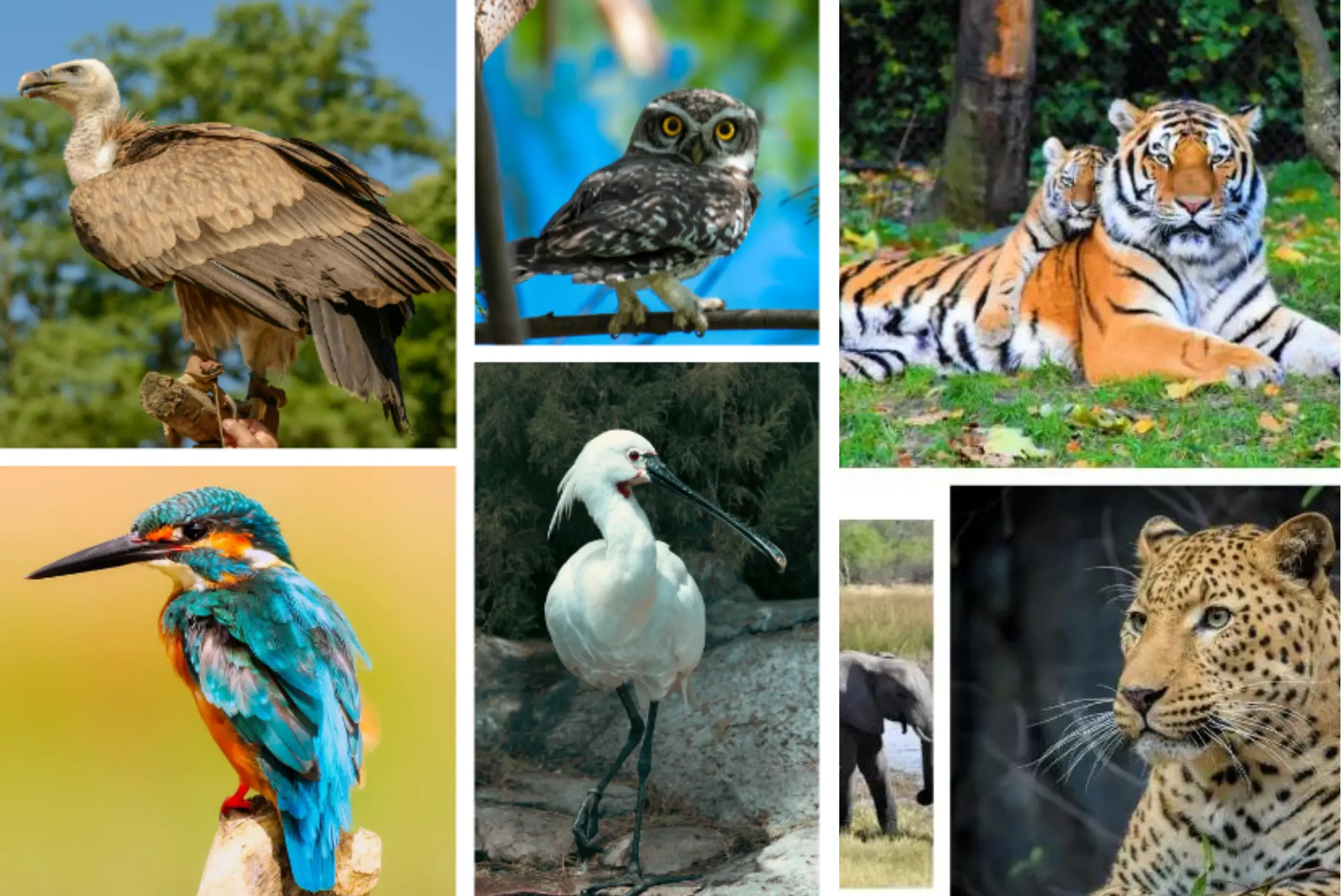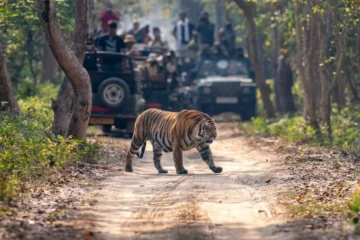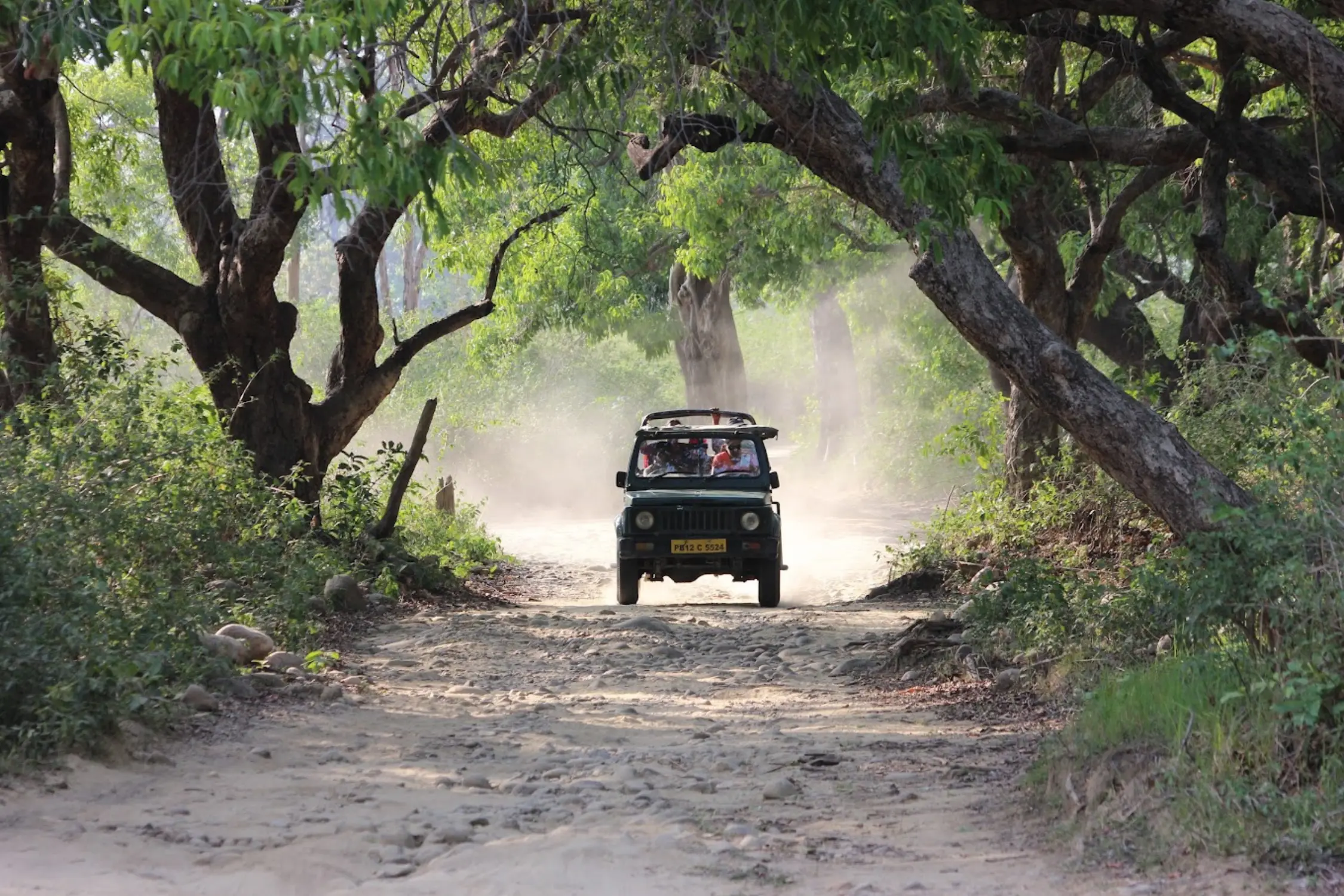Jim Corbett National Park is not only India’s oldest national park but also a treasure trove of biodiversity. Nestled in the foothills of the Himalayas, the park is home to a diverse array of species, making it a paradise for wildlife enthusiasts and nature lovers. In this blog, we will delve into the incredible biodiversity of Jim Corbett National Park, highlighting its unique flora and fauna.
The Majestic Mammals of Jim Corbett
- Bengal Tiger:
- The star attraction of Jim Corbett, the Bengal tiger, is the pride of the park. Known for its elusive nature, spotting a tiger in its natural habitat is a thrilling experience.
- Asian Elephant:
- Herds of Asian elephants roam freely in the park, especially around water bodies. They are known for their intelligence and social behavior.
- Leopard:
- Leopards are another apex predator found in the park. They are highly adaptable and can be seen in various parts of the park, often in hilly areas.
- Sloth Bear:
- These nocturnal creatures are known for their shaggy fur and distinctive white chest markings. They are often seen foraging for food.
- Deer Species:
- The park is home to several deer species, including the spotted deer (chital), sambar deer, and barking deer. These herbivores are often seen grazing in open areas.
- Himalayan Black Bear:
- Though more elusive, the Himalayan black bear can be spotted in the park’s higher altitudes. They are known for their distinctive white chest patch.
Avian Wonders: Birdwatcher’s Paradise
- Great Hornbill:
- This magnificent bird, with its striking yellow and black casque, is a sight to behold. It is often found in the park’s dense forests.
- Crested Serpent Eagle:
- Known for its keen eyesight and hunting prowess, this eagle is a common sight in the park.
- Kingfishers:
- Several species of kingfishers, with their vibrant plumage and sharp beaks, can be seen near water bodies.
- Pied Hornbill:
- This bird, with its unique curved bill, is known for its loud calls and acrobatic flight.
- White-Throated Laughingthrush:
- These social birds are often seen in flocks, chattering away in the park’s undergrowth.
Reptiles and Amphibians
- Gharial:
- These critically endangered crocodilians can be seen basking on the banks of the Ramganga River.
- King Cobra:
- The park is home to the world’s longest venomous snake, the king cobra. They are rarely seen but are an integral part of the park’s ecosystem.
- Indian Rock Python:
- This non-venomous snake is often found near water bodies and can grow to impressive lengths.
- Monitor Lizard:
- These large lizards are frequently seen sunning themselves on rocks and tree trunks.
Flora: The Green Treasure
- Sal Forests:
- The dominant vegetation in the park, sal forests, cover a large portion of the park and provide habitat for many species.
- Grasslands:
- The park’s grasslands, such as the famous Dhikala chaur, are vital grazing grounds for herbivores and offer stunning landscapes.
- Riverine Vegetation:
- Along the Ramganga River and its tributaries, riverine vegetation thrives, supporting a variety of wildlife.
- Bamboo Thickets:
- These dense areas provide cover for many animals and contribute to the park’s rich biodiversity.
Conservation Efforts
Jim Corbett National Park is not just a tourist destination; it is a critical habitat for many endangered species. The park authorities, along with various wildlife conservation organizations, work tirelessly to protect and preserve this unique ecosystem. Anti-poaching measures, habitat restoration projects, and wildlife monitoring are some of the key initiatives in place to ensure the survival of the park’s diverse flora and fauna.
Jim Corbett National Park’s rich biodiversity makes it a must-visit destination for anyone interested in wildlife and nature. From the majestic Bengal tiger to the vibrant birdlife and unique reptiles, the park offers an unparalleled opportunity to experience India’s natural heritage. By visiting and supporting conservation efforts, we can help preserve this incredible biodiversity for future generations.
Whether you are planning a safari or simply want to immerse yourself in nature, Jim Corbett National Park promises an unforgettable adventure into the wild.


